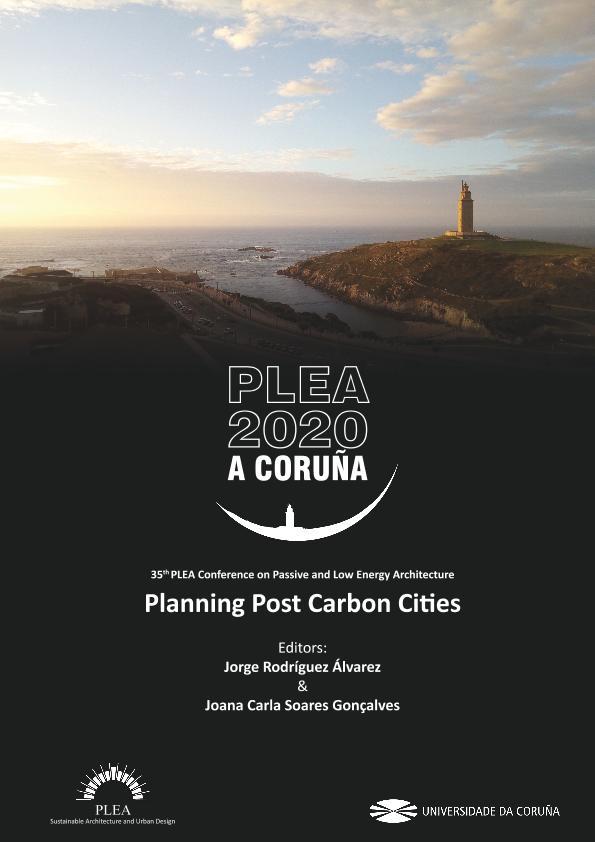Evento
Assessing buildings’ adaptation to climate change: the case of a winery at design project stage
Colaboradores:
Rodríguez Álvarez, Jorge; Soares Gonçalves, Joana Carla
Tipo del evento:
Conferencia
Nombre del evento:
35th PLEA Conference on Passive and Low Energy Architecture
Fecha del evento:
01/09/2020
Institución Organizadora:
Universidad de Coruña;
PLEA Association;
Título del Libro:
Proceedings of the 35th International Conference on Passive and Low Energy Architecture
Editorial:
Universidad de Coruña
ISBN:
978-84-9749-794-7
Idioma:
Inglés
Clasificación temática:
Resumen
This paper presents the thermal and energy analysis of a winery project in the current situation and in 3 tentative scenarios (2020-2050-2080). The winery will be build in the Uco Valley, a cold inter-mountain valley in Province of Mendoza (33° 34´ 57.4 "SL; 69º 02´ 47.8" WL and 1,025 masl) (GD base 18 = 1963 / GD base 20 = 2466). An Energy Plus model of the architectural proposal was made with the current climatic conditions, and in the future according to scenario A2 of the IPCC. Meteorological conditions were adopted using one of the IPCC GCMs. EPW files were generated by Climate Change World Weather File Generator (CCWorldWeatherGen, University of Southampton). According to the initial project, current consumption was estimated at 35.70 kWh/m2 (135,374.40 kWh year), and when the proposed improvements were made to the envelope consumption was halved to 18.28 kWh m2 (69,317.76 kWh year). With these results, future consumption is evaluated in the three mentioned scenarios. The building with improvements turns out to be resilient and adapts to climate change, maintaining the energy consumption of refrigeration throughout its useful life, unlike the initial project in which energy consumption for refrigeration tripled by 2080.
Palabras clave:
THERMAL AND ENERGY SIMULATION
,
FUTURE CLIMATE
,
CLIMATE CHANGE
,
RESILIENCE
Archivos asociados
Licencia
Identificadores
Colecciones
Eventos(INAHE)
Eventos de INSTITUTO DE AMBIENTE, HABITAT Y ENERGIA
Eventos de INSTITUTO DE AMBIENTE, HABITAT Y ENERGIA
Citación
Assessing buildings’ adaptation to climate change: the case of a winery at design project stage; 35th PLEA Conference on Passive and Low Energy Architecture; La Coruña; España; 2020; 1251-1256
Compartir
Altmétricas




